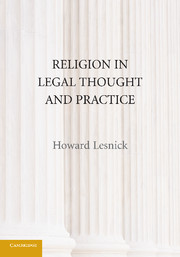Book contents
- Frontmatter
- Contents
- Preface
- I INTRODUCTIONS
- II MORAL OBLIGATION AND RELIGIOUS BELIEF
- 3 What Is the Relation between the Moral Dimension of Obligation and Religious Belief?
- 4 Does Religious Belief Necessarily Have Moral Content? Does Religious Belief Have any Necessary Moral Content?
- 5 What Are the Bases of Resistance to Religiously Grounded Morality?
- 6 Concepts of God, Scripture, and Revelation: The Meanings of “Divine Inspiration”
- 7 Modes of Religiously Grounded Moral Discernment
- III RELIGION AND SOME CONTEMPORARY MORAL CONTROVERSIES
- IV THE INTERACTION BETWEEN RELIGION AND THE SECULAR LAW
- V RESPONDING TO RELIGIOUS DIVERSITY
- VI RELIGIOUSLY GROUNDED MORAL DECISION-MAKING IN PROFESSIONAL LIFE
- Copyright Permission Acknowledgments
- Authors of Works Reprinted
- Scriptural Passages
- Index
6 - Concepts of God, Scripture, and Revelation: The Meanings of “Divine Inspiration”
Published online by Cambridge University Press: 05 June 2012
- Frontmatter
- Contents
- Preface
- I INTRODUCTIONS
- II MORAL OBLIGATION AND RELIGIOUS BELIEF
- 3 What Is the Relation between the Moral Dimension of Obligation and Religious Belief?
- 4 Does Religious Belief Necessarily Have Moral Content? Does Religious Belief Have any Necessary Moral Content?
- 5 What Are the Bases of Resistance to Religiously Grounded Morality?
- 6 Concepts of God, Scripture, and Revelation: The Meanings of “Divine Inspiration”
- 7 Modes of Religiously Grounded Moral Discernment
- III RELIGION AND SOME CONTEMPORARY MORAL CONTROVERSIES
- IV THE INTERACTION BETWEEN RELIGION AND THE SECULAR LAW
- V RESPONDING TO RELIGIOUS DIVERSITY
- VI RELIGIOUSLY GROUNDED MORAL DECISION-MAKING IN PROFESSIONAL LIFE
- Copyright Permission Acknowledgments
- Authors of Works Reprinted
- Scriptural Passages
- Index
Summary
The subject of this chapter, addressing what perhaps are the most fundamental questions of all, is encountered for many of us in the context of the standing of the Scriptures in coming to know “God's Will.” For that reason, we begin with some half-dozen responses to the question, What does the avowal of “divine inspiration” mean in that context? The final paragraphs of George Steiner's “Preface to the Hebrew Bible” briefly and powerfully describe the dichotomous choice that the assertion of divine inspiration typically presents, but immediately goes on to question that dichotomy in words as eloquent as they are succinct. I know of no better introduction to this subject.
However, one cannot long consider the question of the Scriptures without coming to grips with the underlying questions, how do religious traditions understand “God” and our relation to God? The remainder of the chapter attempts to open both questions, by illustrating the variety of responses within and between different traditions.
A PREFACE TO THE HEBREW BIBLE GEORGE STEINER
No Passion Spent: Essays 1978–1995 (1996)
Our poetry, drama, fiction would be unrecognizable if we omitted the continuous presence of the Bible. The centrality of the biblical is most obvious in English-language literatures. [I]n the literatures of English, at home and as a global medium, the kinship with the biblical, as it began with the Anglo-Saxons and with Chaucer, as it informed Donne, Milton, Blake, Melville, T. S. Eliot and so many others, continues.
But is the Bible literature? However rudimentary one's preface to a reading of Scripture, this vexing question cannot be avoided. Two antithetical answers have been declared.
- Type
- Chapter
- Information
- Religion in Legal Thought and Practice , pp. 142 - 176Publisher: Cambridge University PressPrint publication year: 2010



